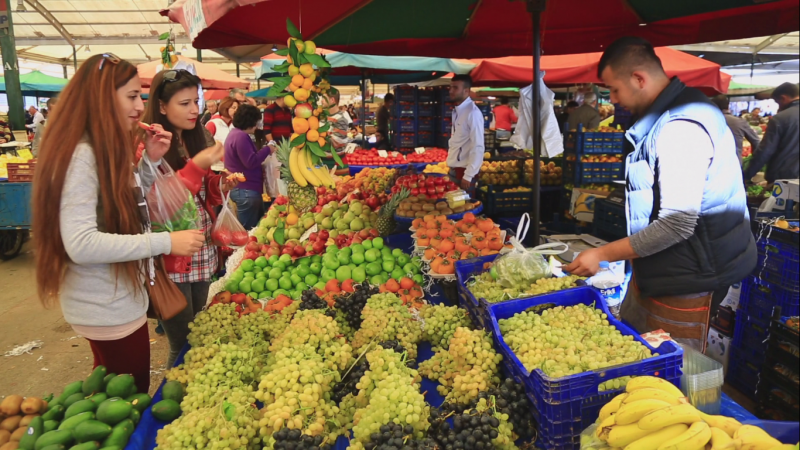Experts have stated that high inflation in food prices is a long-term structural problem for Turkey, adding that permanent reductions in prices require some fundamental changes, BBC Turkish service reported on Monday.
While global food prices, which have been rising due to factors such as Russia’s occupation of Ukraine, increasing energy prices and the climate crisis, have recently been showing a downward trend, food prices in Turkey continue to rise, albeit more slowly than before.
Turkish annual consumer price inflation for food and non-alcoholic beverages was 67.8 percent in March, compared to 70 percent a year earlier, according to data from the Turkish Statistical Institute (TurkStat).
BBC also said, citing The Economist’s Global Food Security Index 2022, that food purchasing power in Turkey had decreased by 16 points between 2012 and 2022.
Prof. Dr. Gökhan Özertan, who works in the field of agricultural economics at Boğaziçi University, told BBC that food inflation has been a problem for Turkey for at least 15 years and that the solution will not be easy since it’s a “structural” problem that can only be solved through some fundamental changes.
Özertan is a co-author of a study published by Cambridge University that examines how food inflation became “chronic” in Turkey between 2003 and 2020 and confirms that the economic uncertainty contributing to the currency crisis has had a significant impact on food inflation by increasing production costs, particularly for farmers, such as for diesel fuel and fertilizer.
“… What do we suggest? First of all: macroeconomic stability. We expect investments that will yield results in five years from farmers who cannot predict whether they can make it through this year in an environment where costs are so unpredictable due to fluctuations in the exchange rate. It’s not realistic,” Hasan Tekgüç, associate professor of economics at Kadir Has University and another co-author of the study, told BBC.
Gökçe Şencan, a climate and water researcher, also said that even if there could be a temporary improvement in prices after macroeconomic stability is achieved, focusing on long-term solutions would be “the healthiest” approach.
Drawing attention to the impact of ongoing droughts due to the climate crisis on productivity and costs in Turkey, Şencan added: “As your groundwater decreases, you will spend more energy to pump water to your fields. … In the long run, we need to prepare for longer and harsher droughts.”
According to an agriculture report by Turkey’s top business group, the Turkish Industry and Business Association (TÜSİAD), in 2020, 97 percent of participants in a survey conducted on 700 farmers throughout Turkey reported experiencing reduced harvests and yield due to climate-related issues they faced.
The report underlined that climate change should be identified as “the biggest risk” threatening the agricultural sector and food security in Turkey in the short, medium and long term and that a comprehensive, inter-institution “climate change adaptation strategy” should be developed with broad participation within the next five to ten years in order to partially control it.
Turkey’s main opposition leader and presidential candidate Kemal Kılıçdaroğlu criticized President Recep Tayyip Erdoğan for the high price of onions in a video he released on Twitter earlier this month, promising to increase the purchasing power of citizens if he is elected president in elections slated for May 14.



